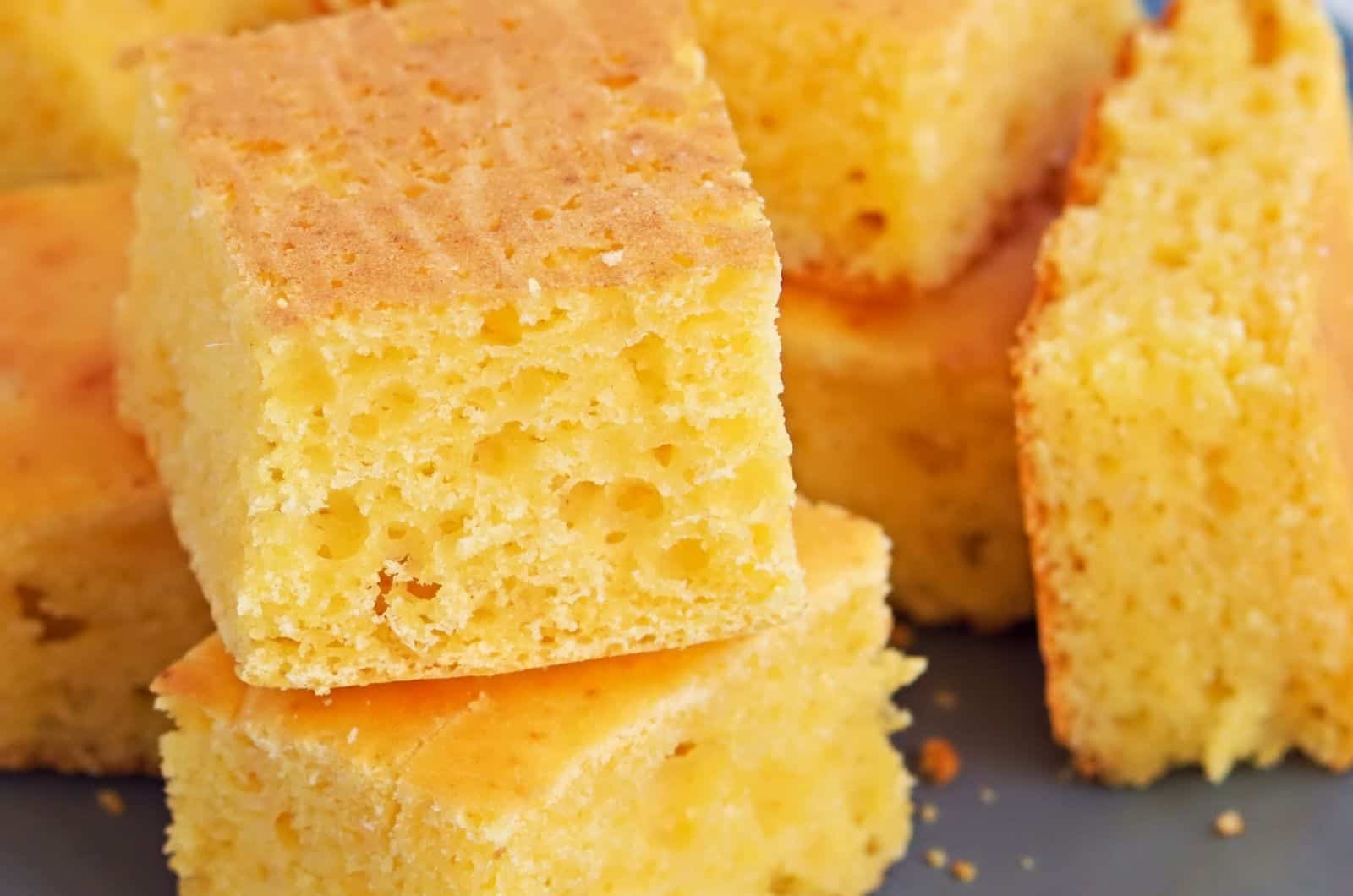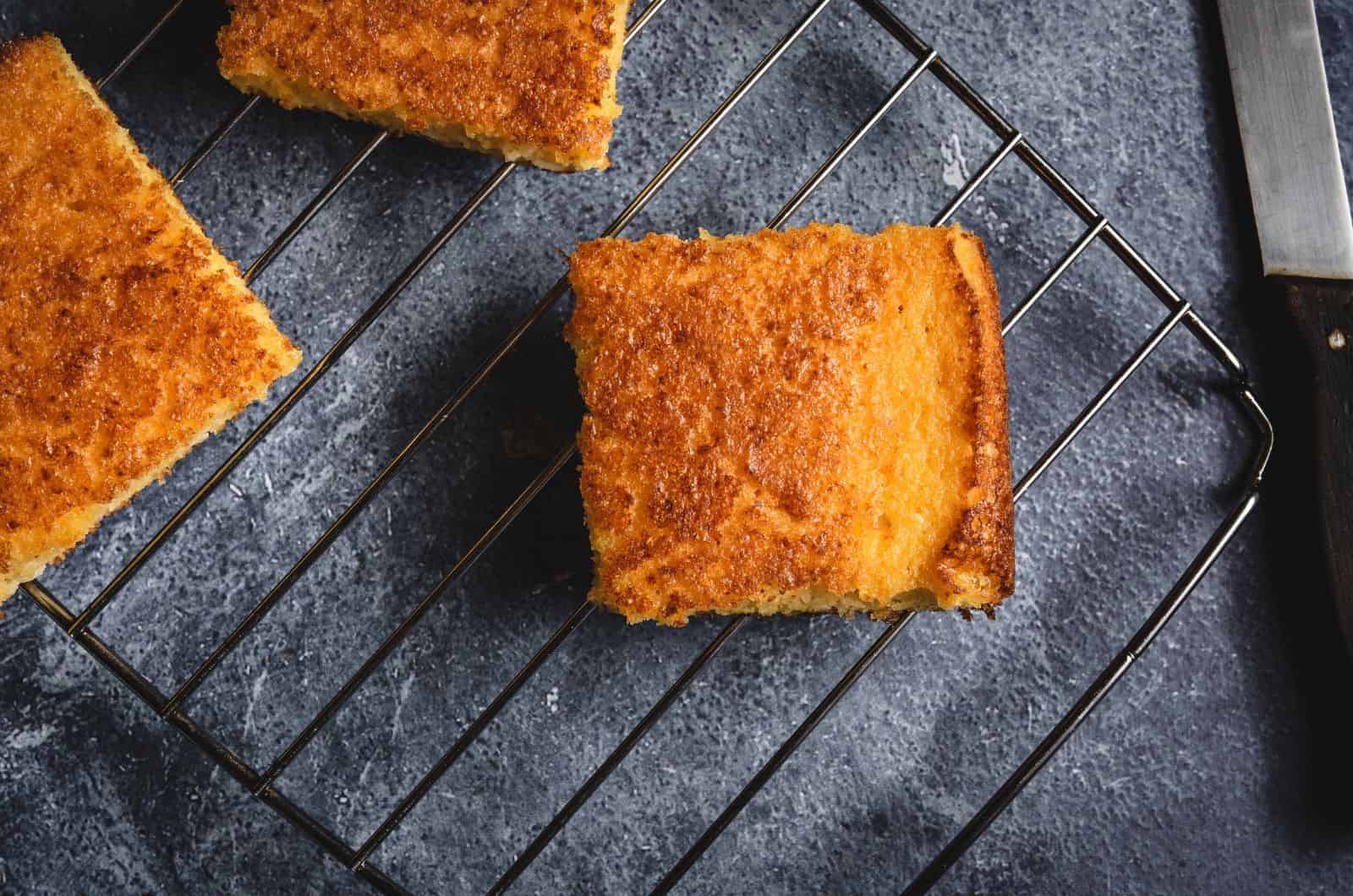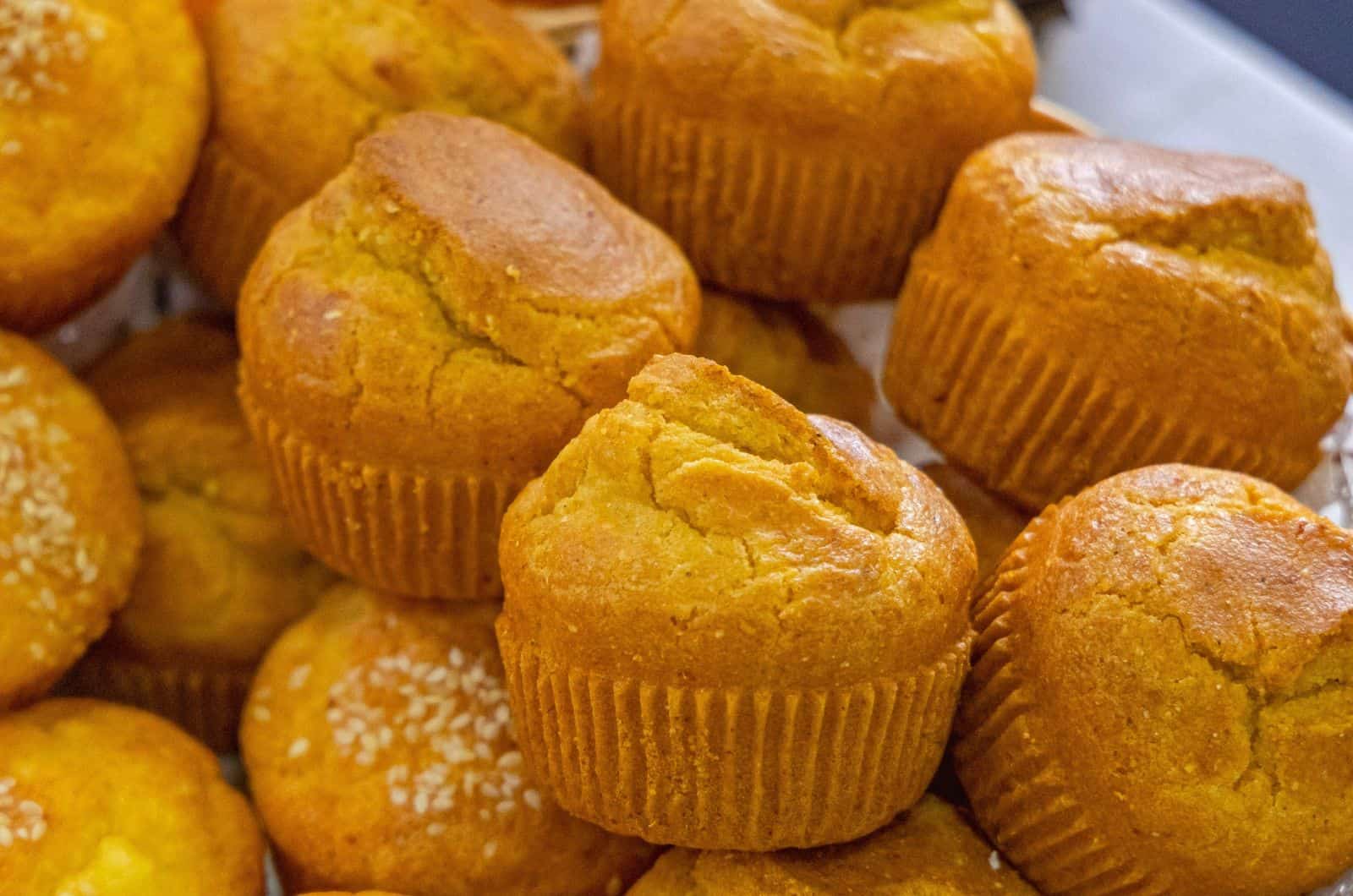I am sure that most of you, on hearing the word cornbread, think about some holiday, for example, Thanksgiving Day.
That is because this staple of American cuisine, introduced by Native Americans to our ancestors, is most often prepared on those happy days. So, I am sure that most of you have positive thoughts about this type of bread made from cornmeal.
It is the main part of every meal and it can also serve as a great side dish for many of your favorite dishes. There are also some other variants of this food, for example, cornbread batter, cornbread dressing, and a cornbread buttermilk muffin.
And, of course, you can buy your favorite cornbread or you can make your own homemade cornbread by your own cornbread recipe.
If you have made a large amount of cornbread and you are wondering how to store cornbread, the legitimate question of whether you can freeze cornbread arises, just like freezing some other foods like freezing chicken (you can find out about this topic in my previous post), some veggies, seafood, etc.
And my answer is yes, you can definitely freeze your fresh cornbread for later use. But, you must know some important pieces of information in order to do it right.
So I wrote this simple guide that will be of great help when you decide to freeze cornbread, whether it is freshly baked cornbread or it is in some other form.
So, Can You Freeze Cornbread?

Again, yes, cornbread can be frozen and it actually freezes very well. It is one of the few foods that preserve its previous quality after it has been frozen and properly defrosted.
One little change is that you can get a little denser bread after you pull it out of the freezer, but that’s actually it.
Once you put your cornbread into the freezer, it can stay there for up to 3 months, i.e. that is the timeframe that is recommended because, if it stays longer, it will lose some of its quality and that is something that you don’t want to happen.
So, if you want to extend the shelf life of your favorite cornbread and prevent food waste, i.e. leftover cornbread, there is nothing bad about putting it into the freezer because it will maintain its main qualities and you will be able to use it freely after some time.
How Can You Freeze Cornbread Properly?
I tried my best to make a complete but very simple guide on how to freeze cornbread, or any other variation of cornbread, for example, freeze cornbread muffins, in 5 main and easy steps. Well, you can also freeze English muffins the same way you would freeze cornbread muffins. So, take a look.
STEP 1: If you have freshly baked cornbread, then your first task is to cool it and you can do that by putting it on the countertop to cool down at room temperature. That will take a few hours, so you just need to be a little patient.
The main reason for cooling down cornbread is to prevent freezer burn, i.e. the spoilage of the cornbread’s texture. Cornbread, when frozen warm, will produce moisture and, in that state, when defrosted, it will be prone to bacterial growth.
STEP 2: When you’ve taken out your cornbread from the baking dish and when you have cooled it, your next task is determined by the fact that you can not refreeze the cornbread.
So, this means that you have to slice your cornbread before you freeze it, rather than freeze the whole loaf. So, once you head for your favorite bread, you will be able to take the precise amount that you need instead of the entire loaf.
STEP 3: Your next task is to wrap cornbread correctly. You can use aluminum foil or plastic wrap. You must make sure that the bread is entirely wrapped, i.e. that they are not exposed to the air. This is the case if you are storing the whole loaf.
On the other hand, if you are freezing slices of your cornbread, then you must wrap each slice individually. You can use plastic wrap or aluminum foil, or you can put pieces of parchment paper between each one of them.
If you have some extra cornbread muffins or cakes, you also have to wrap them individually.
STEP 4: The next logical step is to place the wrapped cornbread into a freezer bag (freezer-safe plastic bag or heavy-duty freezer bag) or airtight container. There will be no problems with the slices as long as you have a bag or container big enough to seal them inside.
There can be a problem if you want to store a whole loaf but you do not have a larger freezer bag or container. In that case, you can double-wrap the whole loaf and freeze it that way.
And, if you have some muffins individually wrapped with foil or cling film, then you can place them together with the cornbread into a large freezer bag.
STEP 5: And the final step is perhaps the easiest one. All you have to do is to label the freezer bag or container so that you know when you put it in the freezer and place it on the bottom of the freezer. You will do this to avoid it being squashed by other items.
How Do You Defrost Frozen Cornbread?
After the discovery of how you can freeze cornbread, there is also the thawing process that you need to know how to follow properly. This process is very simple.
Actually, you have 3 defrosting options to properly thaw cornbread and every option is quite easy. You can thaw it at room temperature, in the fridge, or using the microwave.
I would recommend you defrost it in the fridge since that is the safest way. You just need to take the wrapped cornbread from the freezer, put it in the fridge, and then let it thaw overnight.
If you want some quick bread thawing, then you can use the microwave. But be sure to use the defrost button and keep it wrapped because of moisture. The defrosting function of your microwave will signal when the process is over.
How Do You Reheat Frozen Cornbread?

And the final sub- question linked to the article’s main question of “Can you freeze cornbread?” is about how you reheat frozen cornbread.
I must first say that reheating frozen cornbread is not a good idea, but you must first defrost it using one of the methods from the previous post. After that, it is ready for the reheating process.
So, before you put your cornbread into the oven-safe container, you will first have to preheat the oven to 350F. And when you put it in the preheated oven, you will have to wait a couple of minutes until it is done.
On the other hand, if you’re using a toaster for reheating, it will be best to do that with slices of cornbread. Just make sure that you don’t overheat it because you will get the dried up slices of cornbread.
How Long Does Cornbread Last?
Cornbread can last up to a couple of days, i.e. about 2 days when it is stored at room temperature. This is the case with freshly baked cornbread that will preserve its quality for that amount of time.
If you want it to last a couple of days longer, i.e. about a week, then it is best to refrigerate it. And, of course, if you really want to extend its shelf life, i.e. for about three months, it is best to freeze it.
It is also very important to know how to tell if cornbread has gone bad. So, first, there is mold. If you see mold on your cornbread then that is definitely a sign that it has gone bad.
Also, if you feel a soggy or moist texture under your fingers, that is a sign that it has spoiled. And finally, there is that sour smell by which you can tell that your cornbread is spoiled.
FAQs
Can You Freeze Cornbread Batter?
Yes, you can freeze cornbread batter, but the bread will be much denser. So, once you remove frozen batter from the freezer, you can defrost it in the fridge overnight.
The next day, when you get it out of the fridge, you can freely pour it into a baking pan and, along with other ingredients including baking powder, you can make your delicious dish.
It will be a little denser than fresh cornbread, but that’s all that should really concern you. You can also freeze it in a baking tin and, once it’s ready, you can thaw it in the molds and finally bake it. The baking time will be a little longer than that of the fresh version.
To Wrap Up

So, as you have seen, the answer to the question of whether you can freeze cornbread is absolutely positive. Considering that, I tried my best to present you with the right way to freeze, defrost, and reheat your favorite Holiday ingredient.
You have seen that this is a really simple process and that the bread itself freezes well, i.e. it preserves its quality after proper freezing and defrosting in the right time frame.
So, now that you know these simple steps, there is nothing that can stop you from freezing some of your own cornbread, in case you have extra.
